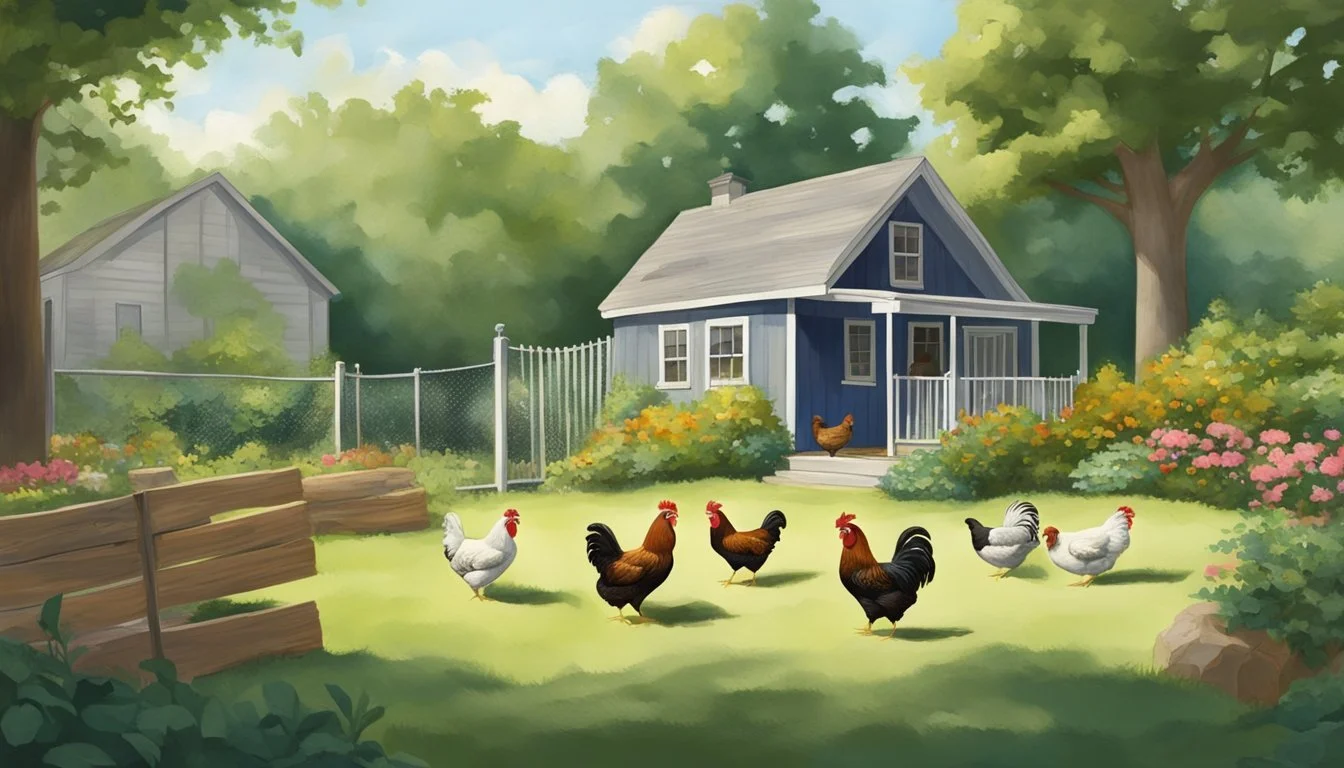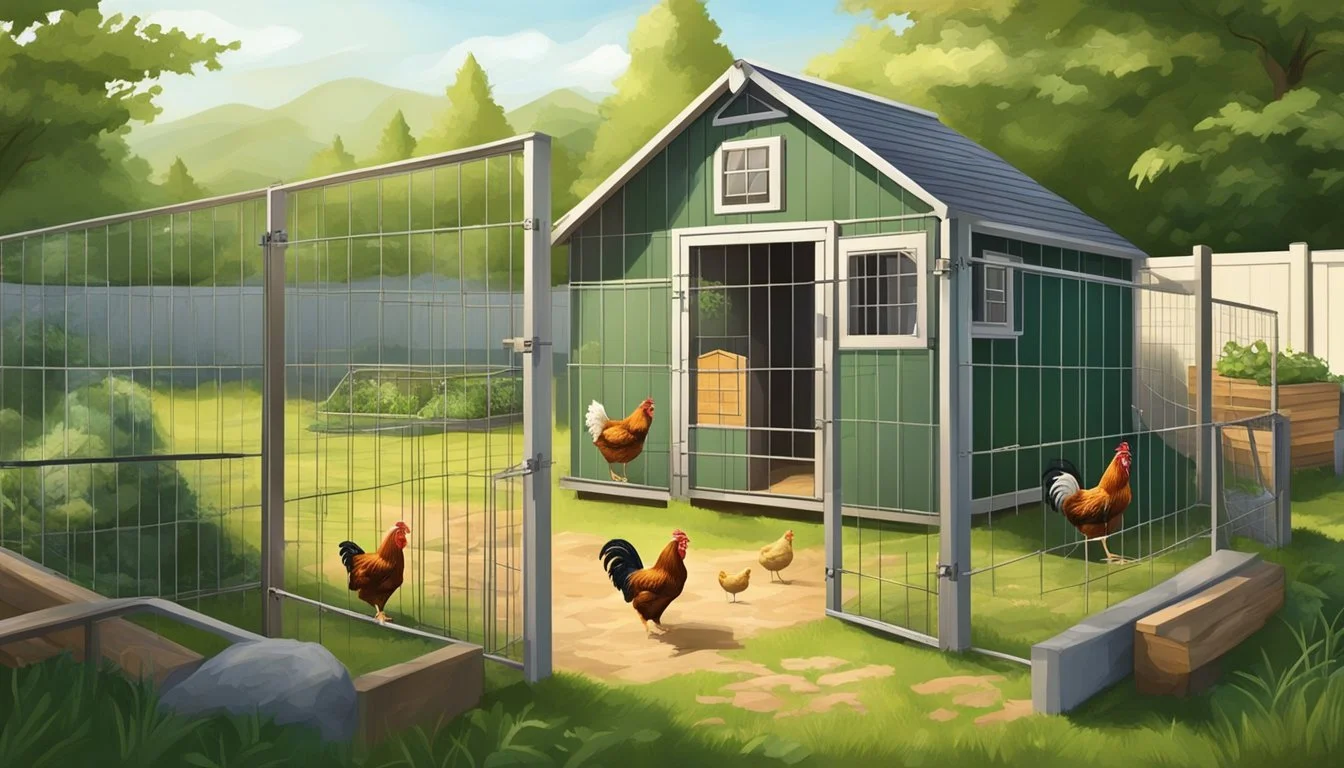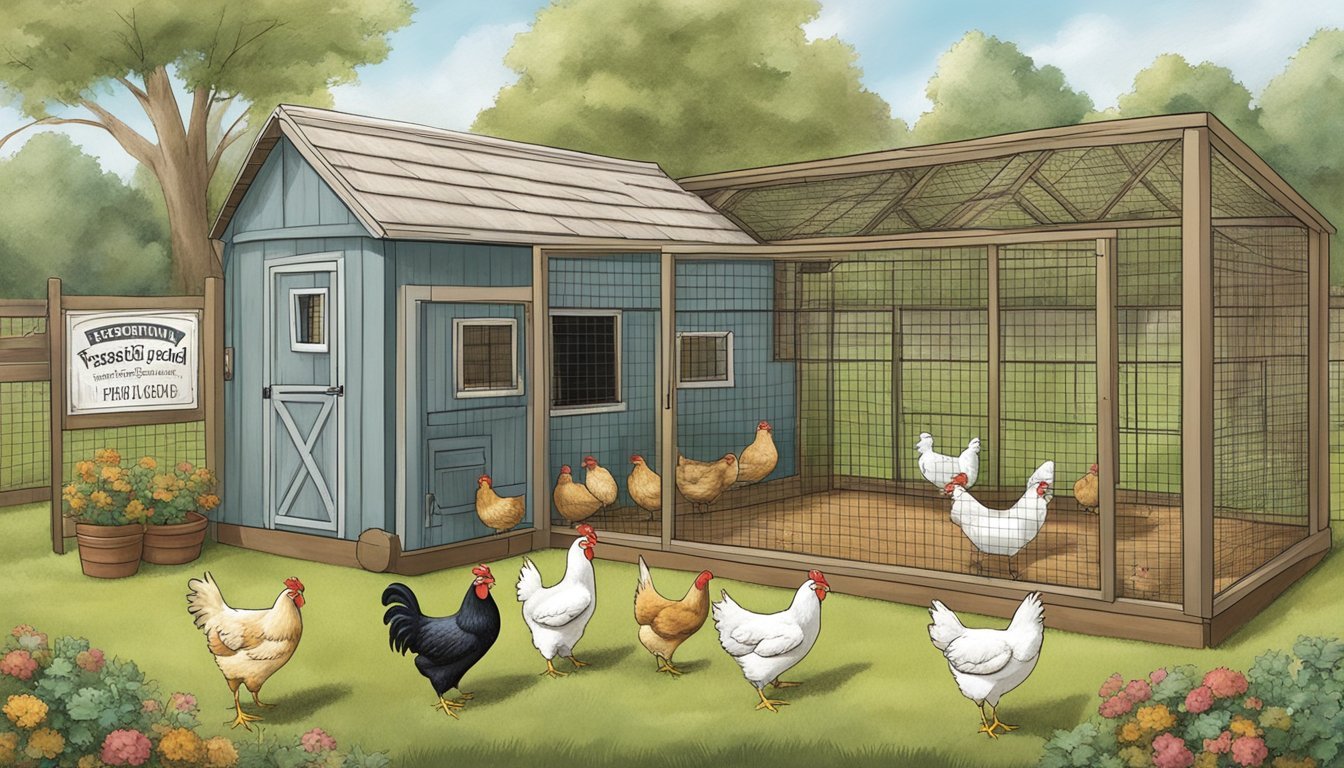Keeping Backyard Chickens in Little Rock, AR
Essential Guidelines for Urban Poultry Farming
The growing trend of urban homesteading has seen a rise in residents of Little Rock, Arkansas, embracing the practice of keeping backyard chickens. This shift towards more sustainable living practices allows individuals to produce local, fresh eggs, while also enjoying the companionship of these birds. The city of Little Rock has put in place a set of ordinances that regulate the keeping of backyard chickens to ensure the wellbeing of the animals, maintain public health, and respect the comfort of neighbors.
Residents are permitted to keep chickens in their backyards under these rules, but they must adhere to specific space requirements and coop placement regulations. Each bird over the age of four months is required to have at least three square feet of space. Additionally, the location of chicken coops is regulated to minimize any potential nuisance; they must be placed at least 10 feet from property lines and 50 feet from neighboring residences. Individuals interested in this pursuit must obtain a permit and comply with the limitations on the number of chickens allowed, which aims to prevent overcrowding and maintain a clean environment.
In Little Rock, backyard chicken keeping is not only a hobby but also part of a lifestyle that connects residents to the source of their food. The local government supports this practice within the framework of the law, striking a balance between urban living and agricultural pursuits. By following the city's guidelines, residents can enjoy the benefits of raising chickens right in their own backyards.
Benefits of Raising Chickens
Raising backyard chickens has become a popular trend in Little Rock, Arkansas, offering multiple benefits to residents. The most immediate benefit is the constant supply of fresh eggs. Hen owners enjoy not only the superior taste but also the peace of mind knowing precisely what goes into their eggs’ production.
These eggs contribute to sustainability efforts, as household food sources reduce the carbon footprint associated with transportation and packaging of store-bought eggs. Also, chickens consume kitchen scraps, converting waste into high-quality eggs, and their manure serves as excellent fertilizer, enhancing soil quality.
In terms of education, families with children gain a valuable opportunity to teach responsibility and the origins of food. Children learn to care for the hens, understand the laying process, and develop an appreciation for the farm-to-table concept.
Lastly, raising chickens supports a balanced ecosystem in one’s own garden. Hens help control pests and weeds, providing a natural method for maintaining one's yard.
By keeping chickens, Little Rock denizens not only enjoy the nutritional and flavorful advantages but also contribute positively to the environment and foster educational growth within their families.
Legal Framework for Backyard Chickens
In Little Rock, Arkansas, residents considering backyard chicken keeping must navigate a specific legal framework. The framework includes local ordinances, zoning requirements, and limitations on the number of birds one can keep.
Understanding Local Ordinances
For Little Rock citizens, it is crucial to understand the ordinances that govern the keeping of backyard chickens. The Little Rock City Code stipulates the parameters for such practices within city limits. City ordinances require that residents adhere to Chapter 6, Section 6-44, which provides guidance on the conditions under which fowl can be kept.
Residential Zoning Requirements
The zoning ordinances of Little Rock determine where backyard chickens are permissible. Although keeping chickens is generally allowed, it may be prohibited in certain zoning districts or subdivisions. Residents must consult with municipal zoning ordinances to ensure their area is zoned for the keeping of backyard chickens and understand any regulations that may apply.
Limitations on the Number of Birds
There are definitive restrictions on the number of chickens one can keep in Little Rock:
Minimum space required: three (3) square feet per bird over four (4) months of age.
Placement regulations: Coops must be situated at least 50 feet from any neighboring residence and 10 feet from the property line.
Permit: A permit is required for keeping backyard chickens, ensuring that the keeping of birds does not lead to nuisances for neighbors and complies with local laws.
The total number of chickens allowed, as suggested by Little Rock's Animal Services, may be limited to 12 per residence.
By complying with these key guidelines, those interested in keeping chickens can do so legally and responsibly within the City of Little Rock.
Chicken Coop Essentials
When setting up a chicken coop in Little Rock, Arkansas, it is important to consider the design and sizing, protection features, and maintenance protocols to ensure the health and safety of the chickens.
Coop Design and Size
The design of a chicken coop must prioritize adequate space and comfort for the chickens. In Little Rock, city ordinances stipulate that each bird over four months old requires at least three square feet of coop space. Coops should also provide sufficient space for feeding, nesting, and free movement.
Minimum Space Requirements: 3 sq ft per bird
Nesting: Allow for 1 nesting box per every 4-5 hens
Protection and Security
A secure chicken coop is vital to safeguard poultry from predators and adverse weather conditions. High-quality construction materials and a sturdy design contribute to a secure pen. It should include:
Sturdy Metal Mesh: To prevent predators from gaining access
Locking Mechanisms: On doors and access points for added security
Roof Covering: To protect from the elements
Maintenance and Sanitation
Proper maintenance ensures that the coop remains clean and free from diseases. Regular cleaning of roosting bars and nesting areas prevents the buildup of waste and promotes a sanitary environment.
Cleaning Schedule: Implement a routine for removing waste and refreshing bedding
Ventilation: Adequate airflow to reduce moisture and odors, contributing to a disease-free coop
Sanitary Practices: Regular disinfection of waterers and feeders to keep the living space clean
Caring for Your Chickens
Proper care of backyard chickens in Little Rock, Arkansas, involves dedicated attention to their diet, health management, and seasonal needs to ensure their well-being.
Feeding and Nutrition
Chickens require a balanced diet rich in proteins and nutrients. The dietary needs of chickens change as they grow. Initially, chicks should be fed an 18-20% protein starter feed until they are about 8 weeks old, followed by a 16-18% starter/grower feed until they reach 14 weeks. From 15-18 weeks, a finisher with 16% protein is appropriate until they transition to a layer feed.
0-8 weeks: Starter feed crumbles (18-20% protein)
8-14 weeks: Starter/grower (16-18% protein)
15-18 weeks and older: Layer feed as recommended
Health and Veterinary Care
Backyard chicken owners must monitor their flock for signs of illness, which can include changes in behavior, reduced egg production, and visible symptoms such as respiratory distress. Routine veterinary care is important to manage potential diseases and administer necessary vaccines and treatments. Owners should have a relationship with a local veterinarian familiar with avian medicine.
Regular health checks: Observe for abnormal behavior or symptoms
Professional vet care: Keep up with vaccines and treatments
Seasonal Considerations
Changing seasons in Little Rock can affect chickens, necessitating adjustments in their care. During hot summers, chickens require ample shade and cool water to prevent heat stress. In winter, they may need additional shelter and insulation to stay warm. Ensuring consistent access to food and fresh water throughout the year is critical.
Summer: Provide shade and cool water
Winter: Extra shelter and insulation to maintain warmth
Community Relations and Regulations
Managing backyard chickens in Little Rock, AR, involves adhering to specific regulations designed to foster good community relations. These regulations are important for maintaining a harmonious neighborhood and ensuring that chicken keeping benefits the local economy without causing disturbances.
Noise and Nuisance Management
In Little Rock, residents are allowed to keep chickens, but roosters are typically prohibited due to noise concerns. Chicken coops must be situated at least 10 feet from the property line and 50 feet from any neighboring residence to minimize noise and odors affecting nearby homes. By following these guidelines, chicken owners can greatly reduce the chances of creating a nuisance.
Handling Complaints and Fines
When noise or other nuisances from backyard chickens lead to complaints, Little Rock's Animal Services enforces the ordinances. Fines may be imposed on chicken owners who fail to comply with local laws. It's important for residents to understand the rules and the consequences, including potential fines, for not following them.
First-time offenders may receive a warning or a small fine.
Repeat offenders may face higher fines and could be required to remove their chickens.
Egg Selling and Local Economy
Selling eggs within Little Rock can support the local economy and provide fresh produce to the community. Residents intending to sell eggs must comply with local health regulations. These regulations ensure that the products are safe for consumption and that the sale activities do not disrupt the neighborhood.
Permits may be required for selling eggs.
Regulations also govern the sanitation and handling of the eggs to prevent health risks.
By adhering to these regulations, chicken owners contribute positively to Little Rock's local economy while maintaining pleasant community relations.
Additional Considerations
When keeping backyard chickens in Little Rock, owners must consider the local climate, prevalent predators, and future coop expansion for the safety and growth of their flock.
Breeds Suitable for the Climate
Choosing the right chicken breeds for Little Rock's climate is paramount. The area experiences hot, humid summers and mild winters. Breeds like the Plymouth Rock and the Rhode Island Red are heat tolerant and also fare well in cooler temperatures, making them ideal for the region.
Risks and Predators
Safety against predators is crucial for a backyard flock. Common predators in the Little Rock area include:
Raccoons: Notorious for their cunning and dexterity.
Foxes: Agile and can dig under fences.
Hawks: Aerial predators that can snatch chickens.
To protect chickens, sturdy coops and runs with secure latching mechanisms, along with fenced yards with wire overhead, are recommended.
Future Planning for Expansion
For those considering future growth, proper planning is essential. Little Rock regulations dictate distance from property lines and neighboring residences. Here are the key points:
Coop placement: 10 feet from property lines and 50 feet from neighbors' homes.
Space requirement: 3 square feet per bird.
This ensures adequate space for birds and may influence the size of the coop and run for future expansions.
Frequently Asked Questions
Navigating the specifics of backyard chicken keeping within Little Rock, AR can raise several questions for current and prospective chicken owners.
Can I Have Roosters in Little Rock?
In Little Rock, regulations are tighter when it comes to roosters. The city's chicken laws typically prohibit the keeping of roosters due to the noise they generate. This is to minimize disturbance within residential areas. It's essential for residents to adhere to these rules to avoid possible legal issues.
What to Do if Chickens Escape?
If chickens escape, it's the owners' responsibility to recapture them promptly. Little Rock ordinances dictate that all poultry, including chickens, should be confined in their coops or runs. Escaping chickens can be a nuisance to neighbors and can lead to a violation of city regulations. It's advisable to ensure coops are secure to prevent such situations.
Are There Restrictions on Slaughtering?
Slaughtering chickens in Little Rock is subject to city regulations, and it's crucial the process is done humanely and out of public view. There may be additional state laws that govern the slaughtering of chickens, and residents are expected to follow both local and state regulations. One should contact the appropriate city department to ensure compliance with all relevant laws.









